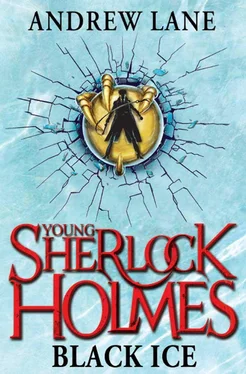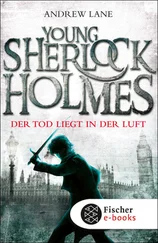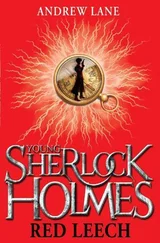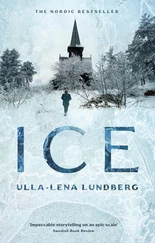Andrew Lane - Black Ice
Здесь есть возможность читать онлайн «Andrew Lane - Black Ice» весь текст электронной книги совершенно бесплатно (целиком полную версию без сокращений). В некоторых случаях можно слушать аудио, скачать через торрент в формате fb2 и присутствует краткое содержание. Жанр: Исторический детектив, на английском языке. Описание произведения, (предисловие) а так же отзывы посетителей доступны на портале библиотеки ЛибКат.
- Название:Black Ice
- Автор:
- Жанр:
- Год:неизвестен
- ISBN:нет данных
- Рейтинг книги:3 / 5. Голосов: 1
-
Избранное:Добавить в избранное
- Отзывы:
-
Ваша оценка:
- 60
- 1
- 2
- 3
- 4
- 5
Black Ice: краткое содержание, описание и аннотация
Предлагаем к чтению аннотацию, описание, краткое содержание или предисловие (зависит от того, что написал сам автор книги «Black Ice»). Если вы не нашли необходимую информацию о книге — напишите в комментариях, мы постараемся отыскать её.
Black Ice — читать онлайн бесплатно полную книгу (весь текст) целиком
Ниже представлен текст книги, разбитый по страницам. Система сохранения места последней прочитанной страницы, позволяет с удобством читать онлайн бесплатно книгу «Black Ice», без необходимости каждый раз заново искать на чём Вы остановились. Поставьте закладку, и сможете в любой момент перейти на страницу, на которой закончили чтение.
Интервал:
Закладка:
She walked off, towards the rear of the house. Sherlock stared after her until she vanished around the corner. He felt like something big had just happened, but he wasn’t sure what it was.
After a while, he walked over to his horse. He hadn’t even told Virginia that he’d named it Philadelphia, he brooded. Maybe he didn’t know very much about emotions, but he knew enough to suspect that this wasn’t the time to go back and tell her.
He headed back to Holmes Manor, his head spinning with conjectures about Amyus Crowe, Virginia, Rufus Stone and his father, now so far away. He didn’t like these conjectures. They were complicated, grown up and illogical. Emotional.
When he got back he sought out his Uncle Sherrinford, and told him about Mycroft’s letter. He didn’t exactly ask permission to go to London, but he didn’t exactly tell Sherrinford that he was going regardless of what was said. He just left the impression that it was a fait accompli. Fortunately, his uncle was in the middle of drafting another of the religious sermons which he sold to vicars all around the country for a few shillings apiece, and his distraction meant that he was more than happy to accept what Sherlock wanted to do, as long as it was what Mycroft wanted as well.
The next morning, when he awoke, the sun was just clearing the trees and the sky was blue from horizon to horizon. The worries of the night before seemed trivial in the bright sunshine. He quickly dressed and, after a rushed breakfast of porridge and toast, asked if one of the carts could run him to the station. It was better than leaving his horse tied up there for hours while he was in London.
Amyus Crowe was waiting for him on the platform, impressive and almost monumental in his white suit and white hat. He nodded to Sherlock.
‘Think we got off on the wrong tack last afternoon,’ he rumbled. ‘Ah regret if ah sounded a mite terse an’ unreasonable.’
‘It’s all right,’ Sherlock said reassuringly. ‘If you believe something, you ought to say it. Not doing so is hypocritical.’
Crowe made a sound deep in his throat. ‘Ginnie’s mother liked opera,’ he said quietly. ‘Big on a German named Wagner, she was. After she died, ah could never stand the sound of an orchestra, nor the sound of a singer.’
‘I understand,’ Sherlock said quietly.
‘Then you’re a wiser man than ah am.’
Fortunately, the train arrived before the conversation could get any more awkward.
The two of them sat in a decent compartment by themselves. The seats were upholstered and comfortable. Steam from the engine rushed like low cloud past the window, and Sherlock watched through gaps as the countryside unfolded before them.
A ticket collector checked their tickets just past Woking. As he left the compartment, sliding the door shut as he went, Crowe said: ‘What did you make of the man that just left?’
Knowing the way Crowe’s mind worked, Sherlock had been expecting a question like that.
‘His shoes were freshly shined,’ he said, ‘and his shirt had been ironed. Either he’s got a maid or he’s married, and as I don’t expect a ticket collector to be able to afford a maid to iron his shirts then I assume it’s more likely that he’s married.’
‘Good so far,’ Crowe rumbled.
‘His wife is older than him,’ Sherlock ventured.
‘How can you tell?’
‘He’s in his thirties, but his collars are of an old-fashioned design. They’re like my uncle’s. They aren’t worn, so it’s not as if he’s been wearing them for years. It must be that whoever is responsible for his clothes prefers the older style of collar, so if it’s his wife then she must be older than him.’
‘You forget the possibility that he may have a younger wife who hails from an old-fashioned family, but yours is the most likely explanation,’ Crowe conceded.
‘And he is slightly blind in his right eye,’ Sherlock finished triumphantly.
Crowe nodded. ‘Indeed. What gave it away?’
‘He has shaved the left side of his face and neck carefully, but the right side still has stubble visible. I deduce that he has difficulty in seeing out of his right eye.’
‘Excellent. You are picking up the skill of observation very nicely.’
‘Did I miss anything?’ Sherlock asked, smiling.
Crowe shrugged. ‘Several points, in fact. The man has been married before, but his wife died. His current marriage is childless, which causes his wife some distress. Oh, and I believe he is pilfering money from the railway company, but that is a stretch.’
Sherlock couldn’t help laughing. ‘How can you tell all that?’
‘Practice,’ Crowe said, smiling. ‘That and natural talent. One day you’ll be able to do it too.’
Sherlock shook his head. ‘I doubt it,’ he said with a laugh. ‘I really doubt it.’
CHAPTER THREE
The journey to Waterloo seemed shorter than Sherlock remembered. Crowe was on good form all the way, making deductions about the various people who came and went in their carriage and on the stations they passed. Sometimes, just to tease Sherlock, he engaged the people in conversation and got them to talk about the things he’d already told Sherlock. The earlier discomfort between them over the subject of Rufus Stone seemed to have vanished.
When the train had heaved its way into Waterloo and slowed to a halt at the platform, the two of them descended and walked through the station to find a hansom cab.
Sherlock had experienced the bustle of Waterloo Station before, but as he and Amyus Crowe made their way through a particularly dense crowd of men in top hats he found himself imagining that he was moving through a grim landscape of industrial chimneys rising up from dark factories. The steam from the trains that drifted around the station just made the comparison worse. Irritated, he tried to put the image to one side. He didn’t often get flashes of imagination like that, and he didn’t like it when he did. There was no logical way to get from top hats to smoky industrial landscapes. That was a poetic comparison, not an analytical one. Amyus Crowe would not approve.
Although Rufus Stone probably would. The thought made him pause uncomfortably.
Crowe hailed a hansom cab outside the station. They had no luggage, as they were just up for the day, so they climbed inside and set off.
The cab was little more than a box on two wheels, with the driver sitting on top and the horse attached to the front with a leather harness and reins. It jerked and rattled terribly on London’s bumpy roads.
‘The Diogenes Club,’ Crowe called up to the driver.
‘Where’s that, guv?’ the man called back.
‘Head for the Admiralty,’ Crowe shouted. ‘Ah’ll direct you from there.’ Settling back down in his seat as the cab started off, he said conversationally: ‘The club’s only been in existence for a year or so. Seems your brother was one of the founders, or so he tells me. Named after the Greek philosopher Diogenes of Sinope. Diogenes was one of the founders of the Cynic philosophy, or Cynicism, as it has become known.’
‘I’ve heard the word “cynics”,’ Sherlock said, ‘but I’m not exactly sure what it means.’
‘Cynics suggested that the purpose of life was to live a life of virtue in agreement with nature, which meant in practice rejecting all conventional desires for wealth, power, health and fame, and living a simple life free from all possessions. Can’t fault them for that, although it does more or less rule out any industrial progress in a society. The Cynics also believed that the world belonged equally to everyone, and that suffering was caused by false judgements of what was valuable and by the worthless customs and conventions which surrounded society.’ He paused. ‘Not sure how that applies to your brother, or the club, but you ought to know that the Diogenes Club has one very strict rule. Nobody is allowed to talk on the premises. Not one word. The only exception is the Strangers Room, which is where ah assume your brother will be meetin’ us. If not, we’re in for an uncomfortable day.’
Читать дальшеИнтервал:
Закладка:
Похожие книги на «Black Ice»
Представляем Вашему вниманию похожие книги на «Black Ice» списком для выбора. Мы отобрали схожую по названию и смыслу литературу в надежде предоставить читателям больше вариантов отыскать новые, интересные, ещё непрочитанные произведения.
Обсуждение, отзывы о книге «Black Ice» и просто собственные мнения читателей. Оставьте ваши комментарии, напишите, что Вы думаете о произведении, его смысле или главных героях. Укажите что конкретно понравилось, а что нет, и почему Вы так считаете.












